BCC planning code creates toxic oversupply of business premises
Brisbane City Council may have had the best intentions when it set this rule for developers of new multi-level residential developments, but it has backfired spectacularly, resulting in dozens of retail premises sitting empty because of a chronic oversupply.
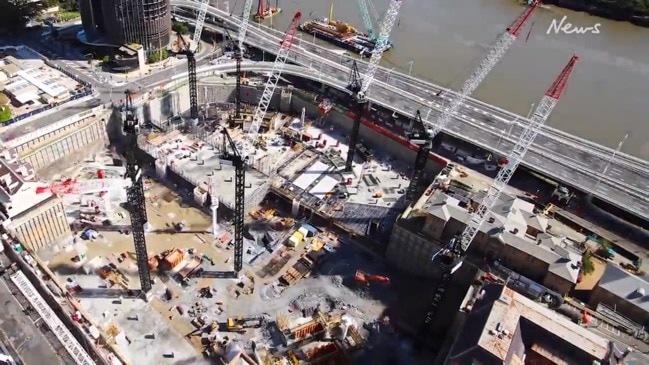
QLD Business
Don't miss out on the headlines from QLD Business. Followed categories will be added to My News.
IT WAS a planning policy designed to turn Brisbane into a thriving shopping metropolis but instead, it has business cannibalising each other and created a glut of retail vacancies.
Scattered across Brisbane are vacant retail outlets of varying sizes underneath contemporary residential towers that simply cannot be filled.
Nundah Village: It’s the village of the damned as restaurants and cafes close down
FTTOA Nundah development will rip out the heart and soul of the village, residents say
Toowong is back on trend with new development plans and rising tenant demand
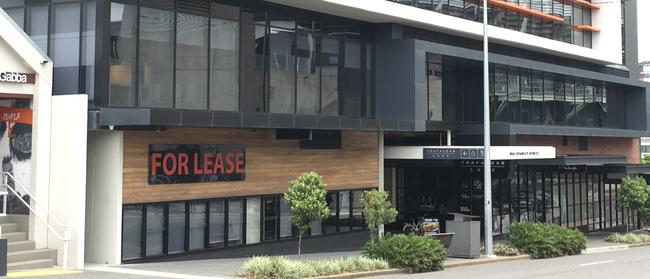
One premises in Nundah, a suburb that has been dubbed the Village of the Damned, has been vacant for three years while another in Toowong is both for lease and sale.
They are but two of dozens of idle street-level commercial premises that developers have been forced to provide under BCC’s planning laws that have given Brisbane the ‘basement blues’.
While the building code is quite complex, basically, a developer needs to include street-level business premises if it is specified in a neighbourhood plan.
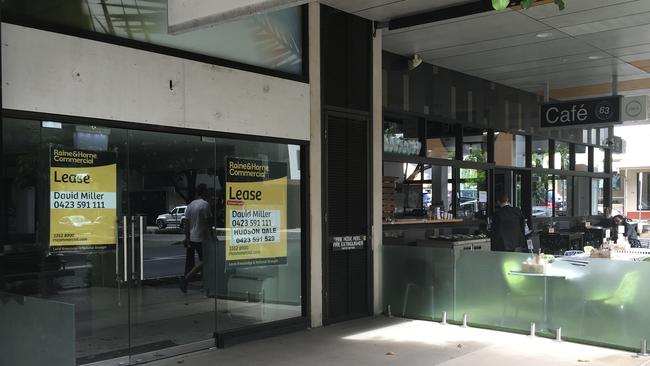
Creating active street-level premises within residential towers was well-intentioned but has missed the mark, says Griffith University’s urban and environmental planning lecturer Dr Tony Matthews.
He said the retail economy was struggling enough because of online shopping without more properties being shoe-horned into a shrinking market.
“You have the planning principle meeting economic reality,” Mr Matthews said.
“The shops and business premises are adding to the surplus and its part of a timeline issue.”

Mr Matthews said the council’s vision was sound but with retail in decline and the service industry, such as gyms and cafes, continuing to rise it has been ill-timed.
“Anything you used to buy along with a strip shopping you can buy online, so rather than a retail economy it’s becoming a service economy,” he said.
“It’s why you have so many gyms and cafes because you can’t buy coffee and a workout online.”
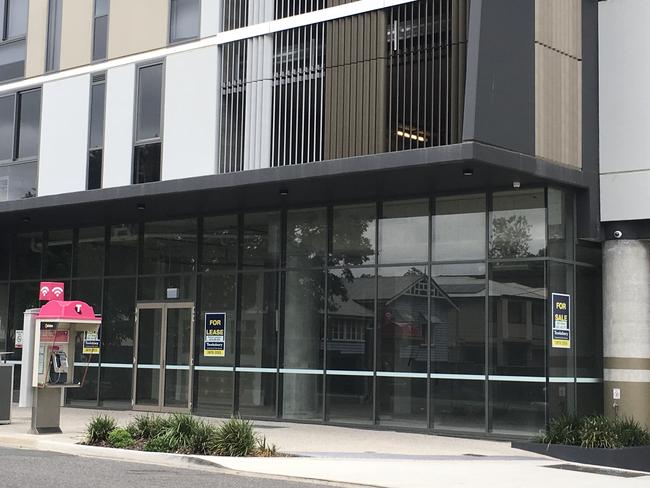
Raine & Horne associate director of Brisbane North commercial Hudson Dale said developers would prefer to concentrate on building street-level residences than more shops, at least for the time being.
He said ground floor apartments within new complexes were highly sought after by retirees, the elderly and people with disabilities.
“The council is making these developers put shops downstairs because it flows well with the street, and we may one day need them, but at the moment we don’t because we can’t fill them,” Mr Dale said.
“The developer doesn’t want a shop that’s empty for any time, they want someone to occupy the ground floor. The timing is all wrong.”
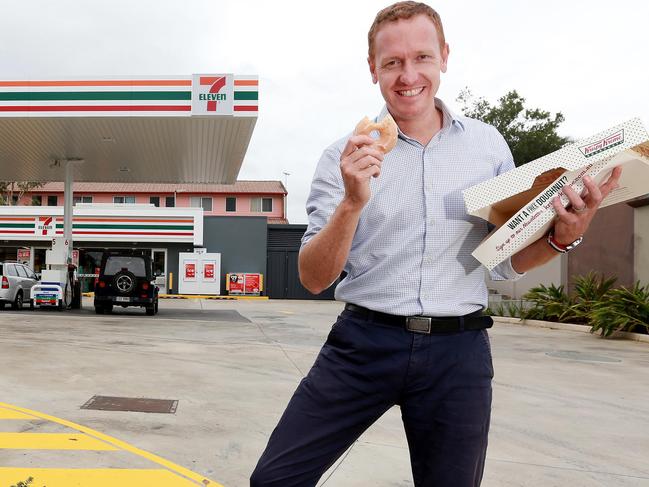
One of the many properties Mr Dale has for rent sits not far from Nundah Village.
It’s a plush unused business premises underneath a six storey residential building that has been sitting idle for three years.
He said the lack of available carparking within new developments has been problematic and has stifled his efforts to find suitable tenants.
“There is no additional parking built-in because it costs extra, so I have all these shops with one car park and I have one in Nundah that has three car parks for a 400 sqm premises,” he said.
“It’s been vacant for three years. If it had heaps of car parks I could lease it to anyone.”
Across town, and away from the hustle and bustle of villages and high-density living, in Bardon is a small complex with five storeys that is slowly filling up,
Breezes on Bardon has but one vacancy after a concerted seven-month effort by Savills Australia leasing executive Daniel Paxton.
“Retail is a tricky market and we are happy with the progress,” Mr Paxton said.
“We kicked off the campaign in July last year and we have leased four out of the five and we’re confident the last one will be leased by mid-year.”
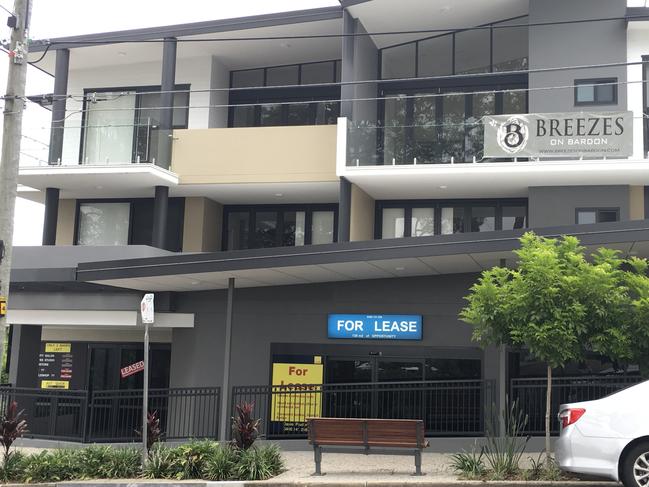
If ever there was a case for the council to ease off on its creating street level shopping utopia, it’s now, says QUT’s Business School professor Gary Mortimer.
He said small businesses were struggling and, with an abundant number of high street vacancies, Brisbane does not need more commercial premises.
“We can’t fill existing retail space and forcing developers to provide retail premises only cannibalises existing businesses within the area,” he said.
For those that are vacant, Mr Mortimer suggested dry cleaners and postal services were but two service industries that could fill some of the voids.
“Dry cleaners and postal services, especially with online shopping being so prevalent, would be suitable for large residential complexes which would be utilised by residences of these buildings,” he said.
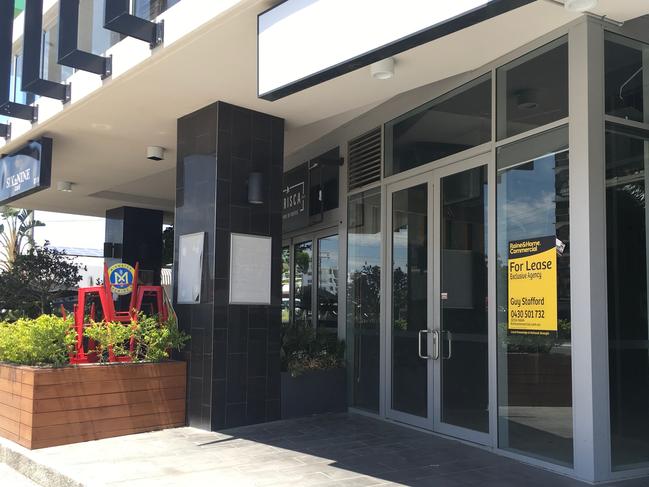
A council spokesman said they understood the pressures facing small businesses and they were cutting fees and charges to assist them while also being open to revising their planning requirements.
“Some developments within certain zoning, neighbourhood plans or overlays require provisions for retail/commercial tenancies on ground level,” the spokesman said.
“Council will continue to review as it adapts its planning scheme to meet the needs of residents and businesses as Brisbane grows.”


